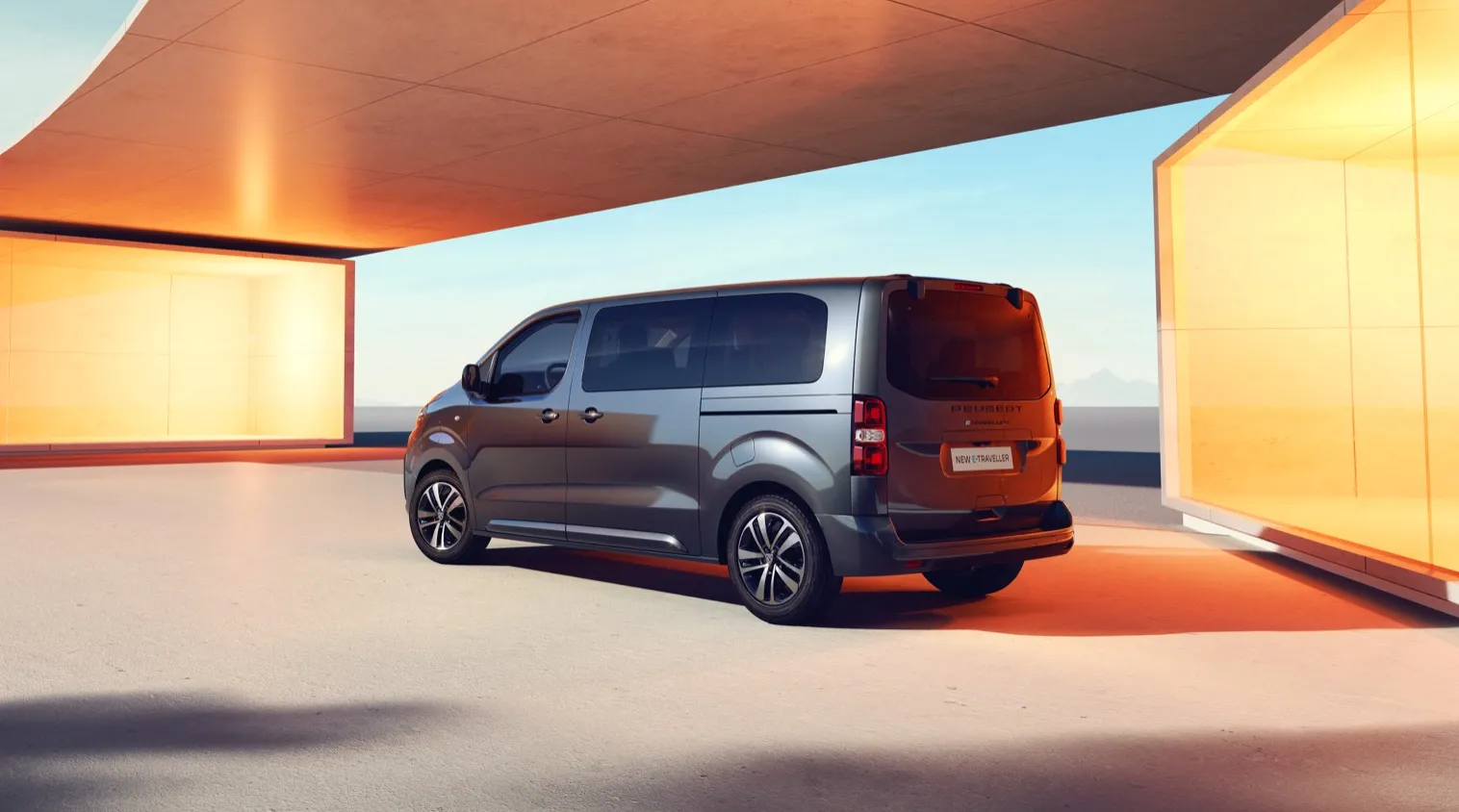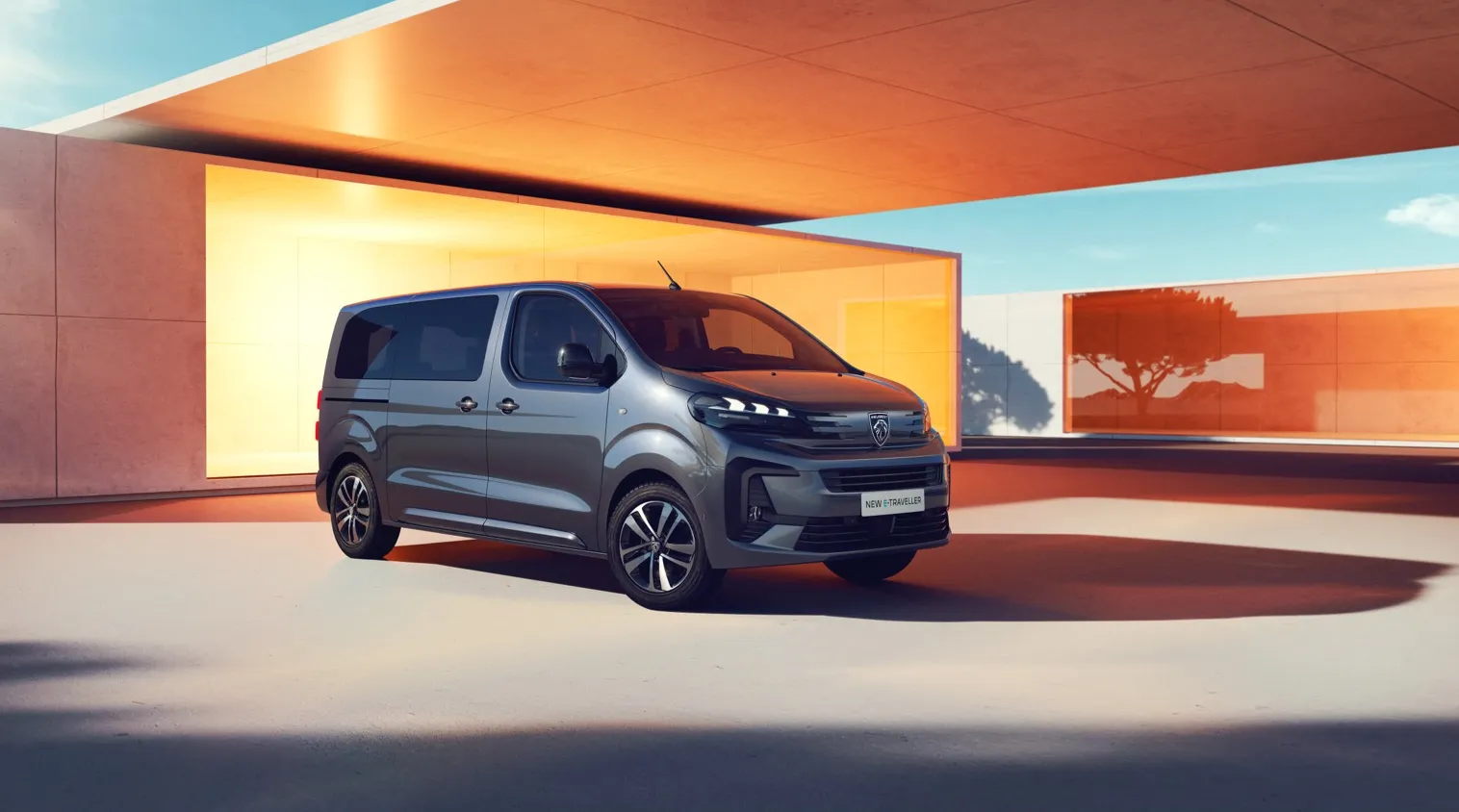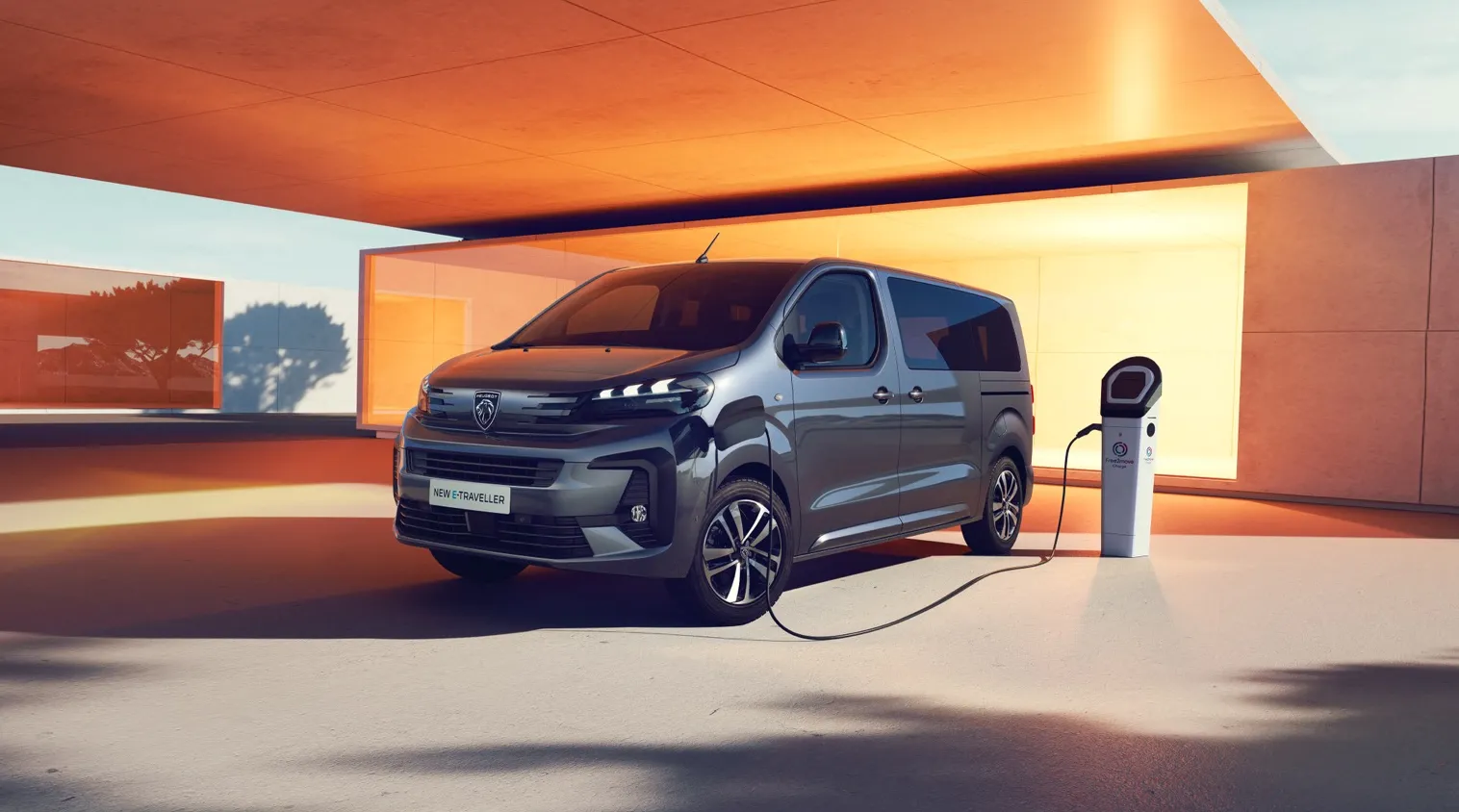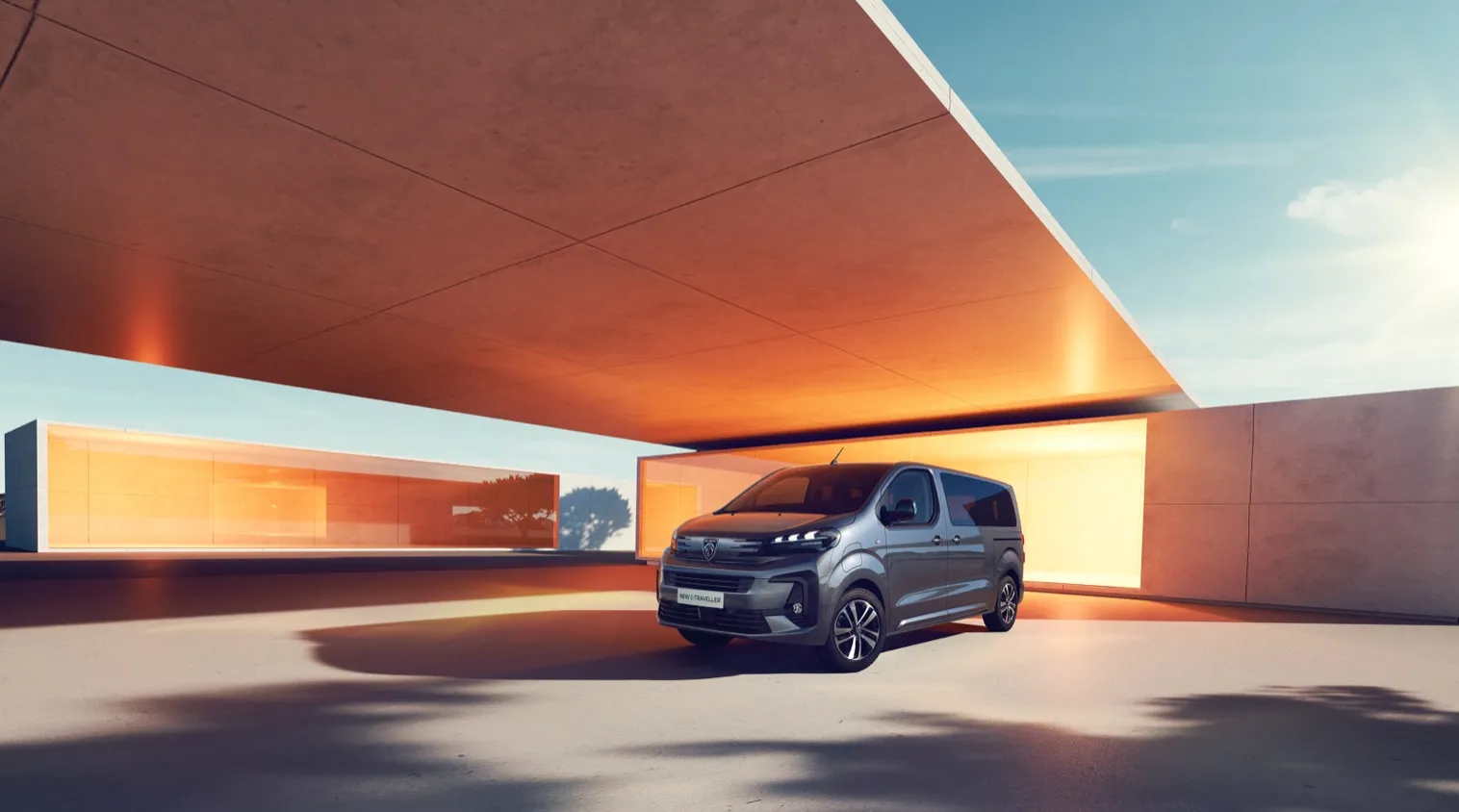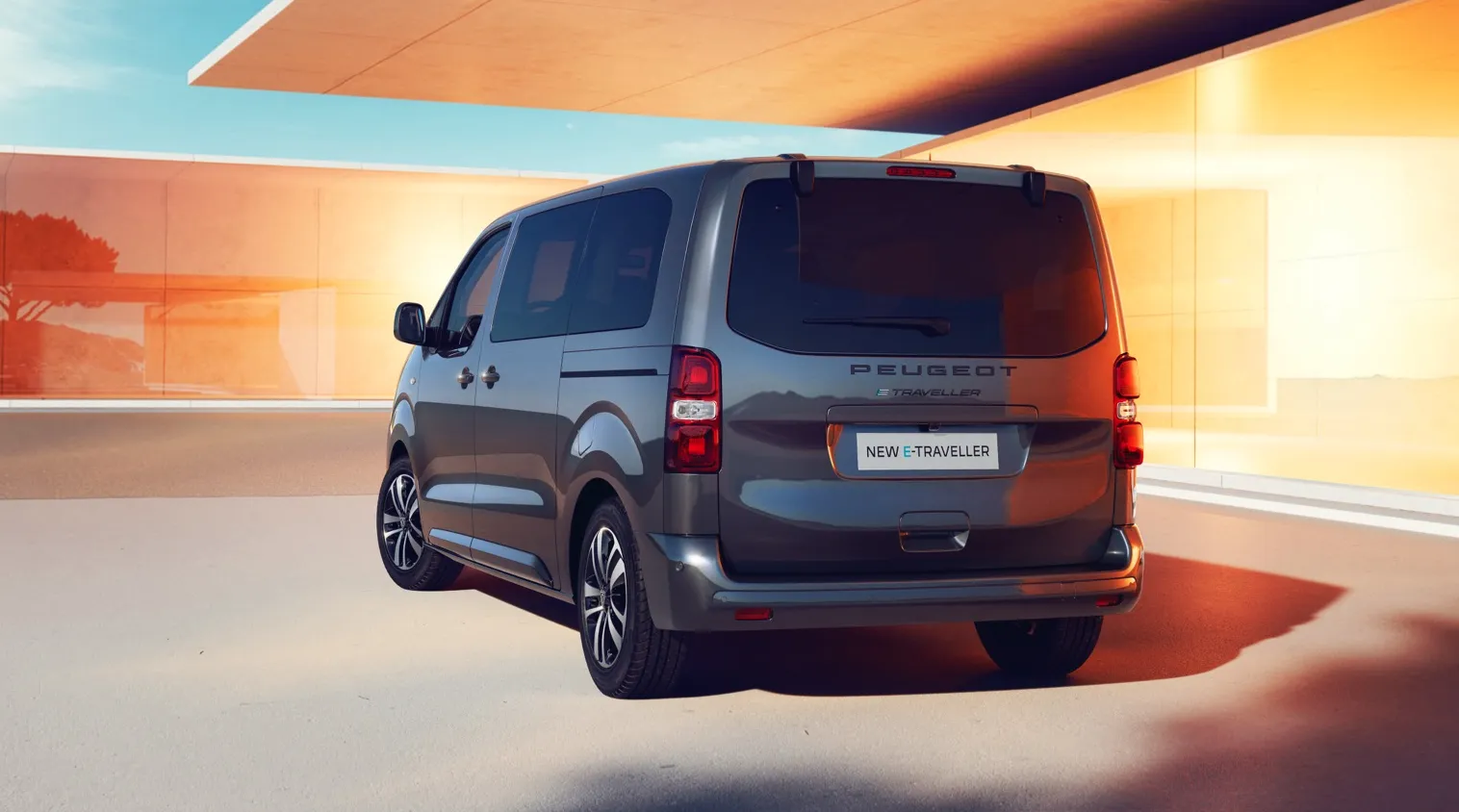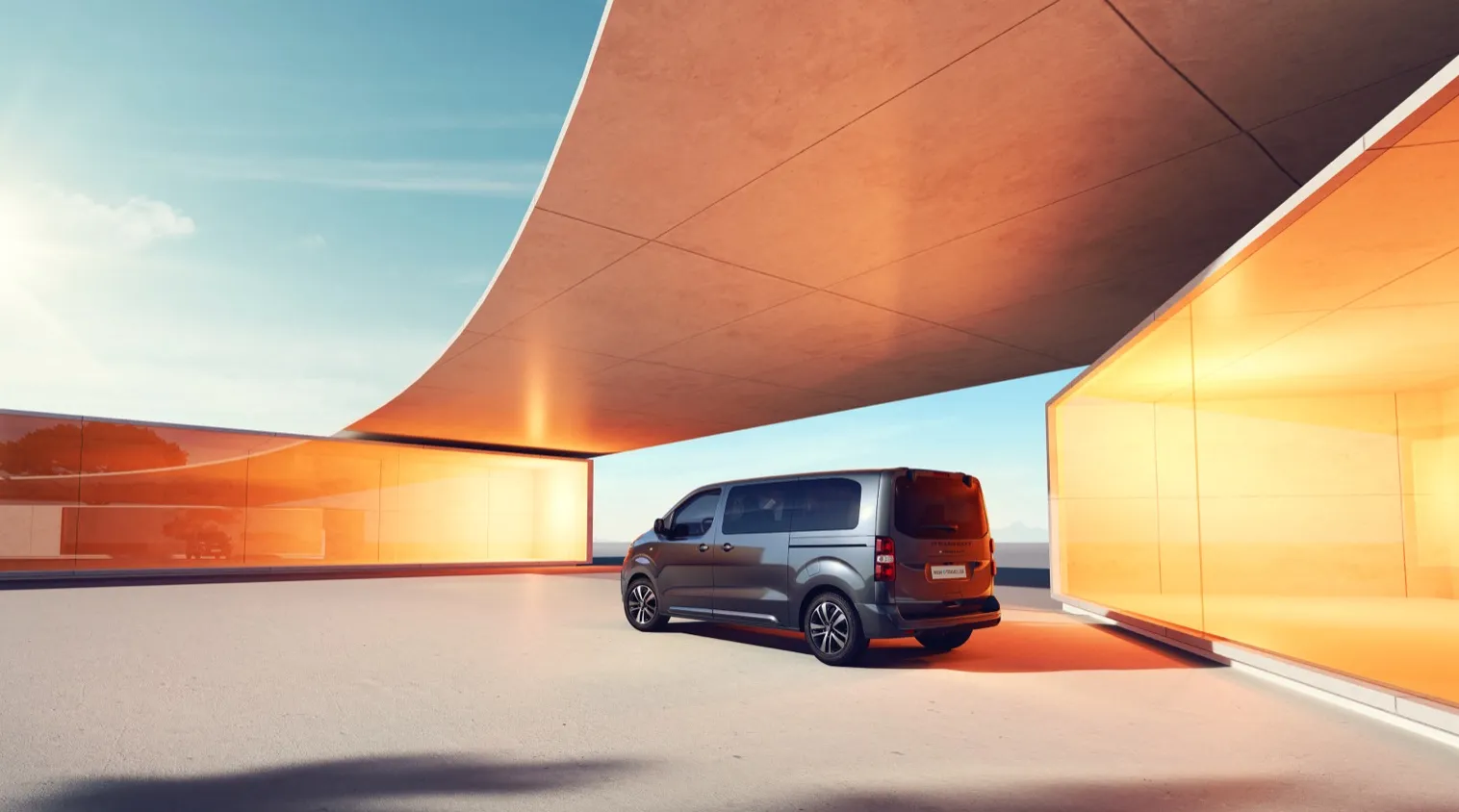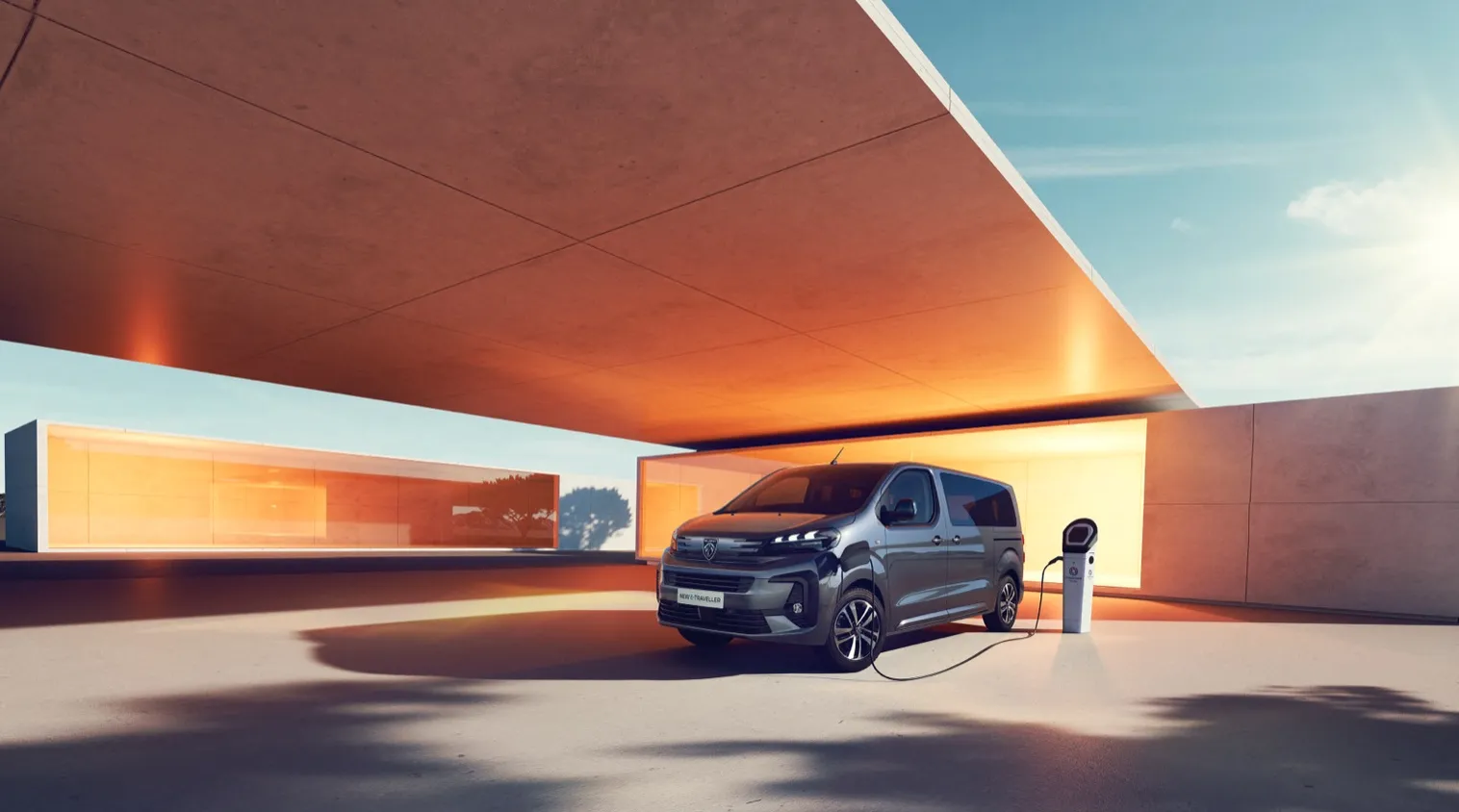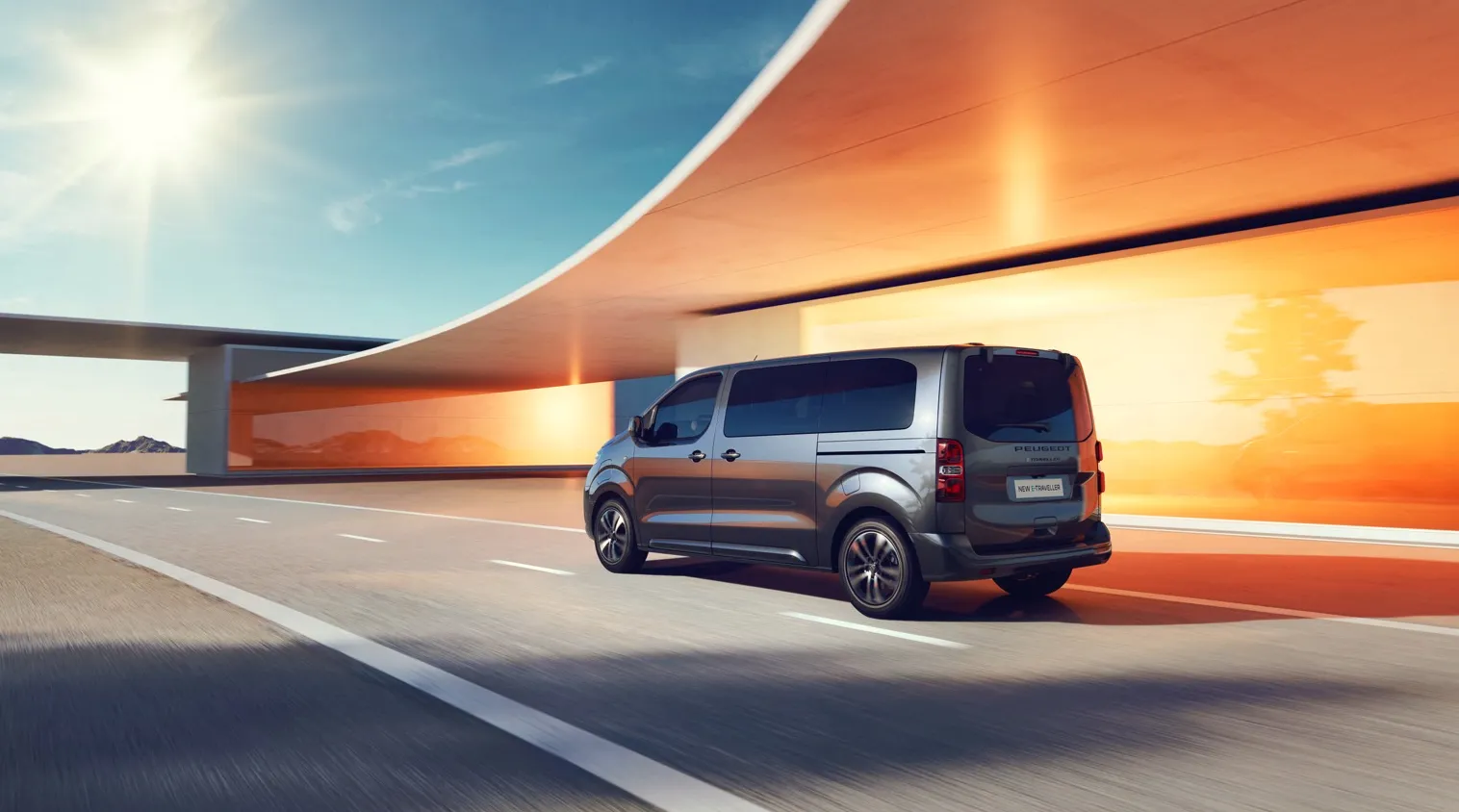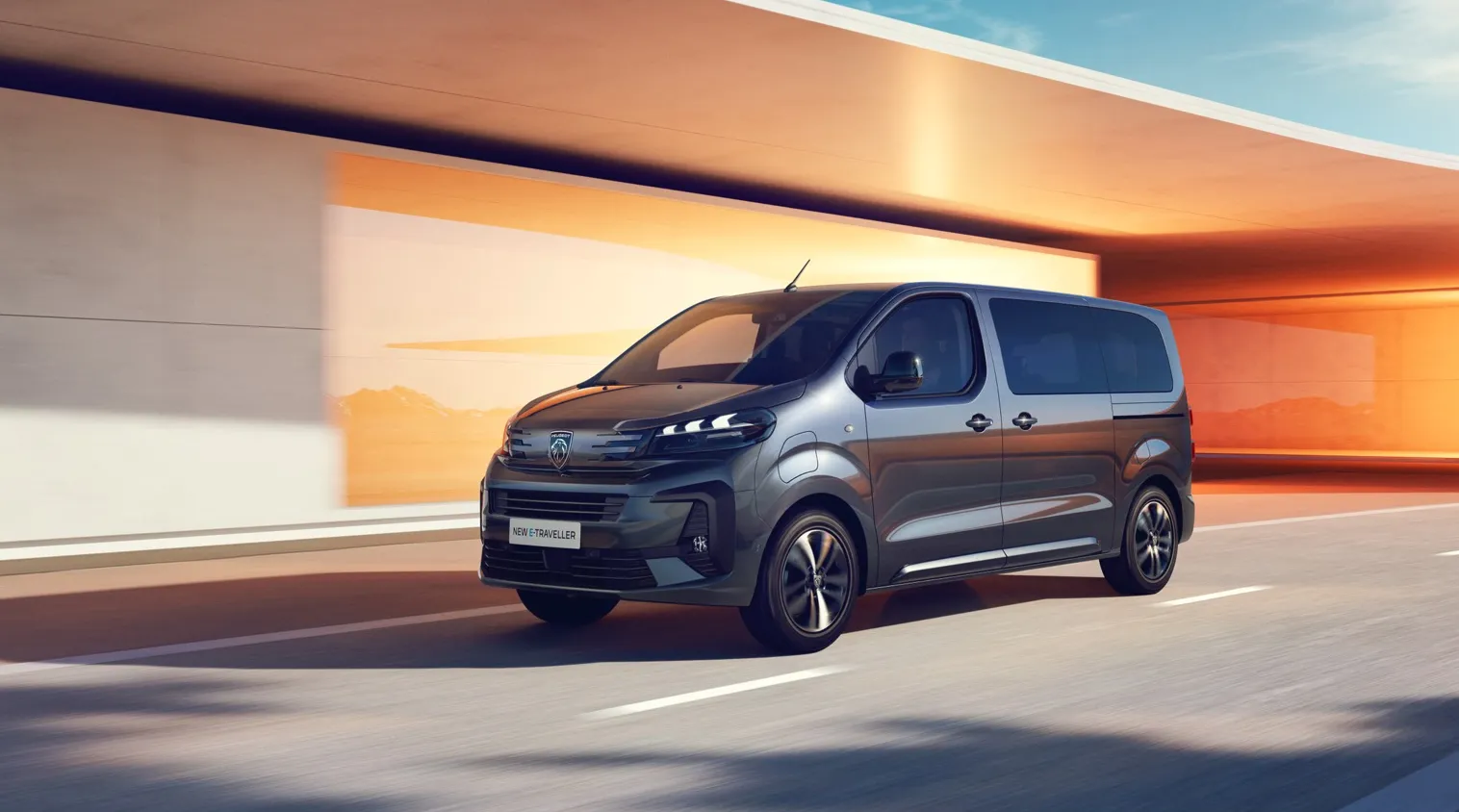Peugeot e-Traveller L2 50 kWh
Model: Peugeot
- : 46.3 kWh
- : 180 km *
- : 257 Wh/km *
Real Range Estimation
| City - Cold Weather * | 195 km |
| Highway - Cold Weather * | 125 km |
| Combined - Cold Weather * | 155 km |
between 125 - 275 km
| City - Mild Weather * | 275 km |
| Highway - Mild Weather * | 155 km |
| Combined - Mild Weather * | 205 km |
Performance
| Acceleration 0 - 100 km/h | 13.3 sec |
| Top Speed | 130 km/h |
| Electric Range * | 180 km |
| Total Power | 100 kW (136 PS) |
| Total Torque | 270 Nm |
| Drive | Front |
Battery
| Nominal Capacity | 50.0 kWh |
| Battery Type | Lithium-ion |
| Number of Cells | 216 |
| Architecture | 400 V |
| Warranty Period | 8 years |
| Warranty Mileage | 160,000 km |
| Useable Capacity | 46.3 kWh |
| Cathode Material | NCM |
| Pack Configuration | 108s2p |
| Nominal Voltage | 400 V |
| Form Factor | No Data |
| Name / Reference | No Data |
Bidirectional Charging (V2X / BPT)
Vehicle-to-Load (V2L)
| V2L Supported | No |
| Max. Output Power | - |
Vehicle-to-Home (V2H)
| V2H via AC Supported | No |
| Max. Output Power | - |
Vehicle-to-Grid (V2G)
| V2G via AC Supported | No |
| Max. Output Power | - |
Energy Consumption
EVDB Real Range
| Range * | 180 km |
| Vehicle Consumption * | 257 Wh/km |
WLTP Ratings (TEL)
| Range | 223 km |
| Rated Consumption | 243 Wh/km |
| Vehicle Consumption | 208 Wh/km |
WLTP Ratings (TEH)
| Range | 213 km |
| Rated Consumption | 247 Wh/km |
| Vehicle Consumption | 217 Wh/km |
Dimensions and Weight
| Length | 4983 mm |
| Width | 1920 mm |
| Width with mirrors | 2204 mm |
| Height | 1890 mm |
| Wheelbase | 3275 mm |
| Weight Unladen (EU) | 2027 kg |
| Gross Vehicle Weight (GVWR) | 2941 kg |
| Max. Payload | 989 kg |
| Cargo Volume | 603 L |
| Cargo Volume Max | 3968 L |
| Cargo Volume Frunk | 0 L |
| Roof Load | 150 kg |
| Tow Hitch Possible | Yes |
| Towing Weight Unbraked | 750 kg |
| Towing Weight Braked | 1000 kg |
| Vertical Load Max | 60 kg |
Miscellaneous
| Seats | 9 people |
| Isofix | Yes, 3 seats |
| Turning Circle | 12.9 m |
| Platform | PSA EMP2 |
| EV Dedicated Platform | No |
| Car Body | Small Passenger Van |
| Segment | N - Passenger Van |
| Roof Rails | No |
| Heat pump (HP) | Yes |
| HP Standard Equipment | Yes |
Home and Destination Charging (0 -> 100%)
Charging is possible by using a regular wall plug or a charging station. Public charging is always done through a charging station. How fast the EV can charge depends on the charging station (EVSE) used and the maximum charging capacity of the EV. The table below shows all possible options for charging the Peugeot e-Traveller L2 50 kWh. Each option shows how fast the battery can be charged from empty to full.
Europe
Charging an EV in Europe differs by country. Some European countries primarily use 1-phase connections to the grid, while other countries are almost exclusively using a 3-phase connection. The table below shows all possible ways the Peugeot e-Traveller L2 50 kWh can be charged, but some modes of charging might not be widely available in certain countries.
| Type 2 (Mennekes - IEC 62196) |
|---|
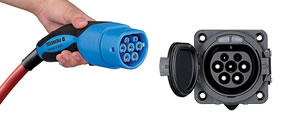 |
| Charging Point | Max. Power | Power | Time | Rate |
|---|---|---|---|---|
| Wall Plug (2.3 kW) | 230V / 1x10A | 2.3 kW | 23h45m | 8 km/h |
| 1-phase 16A (3.7 kW) | 230V / 1x16A | 3.7 kW | 14h45m | 12 km/h |
| 1-phase 32A (7.4 kW) | 230V / 1x32A | 7.4 kW | 7h30m | 24 km/h |
| 3-phase 16A (11 kW) | 400V / 3x16A | 11 kW | 5 hours | 36 km/h |
| 3-phase 32A (22 kW) | 400V / 3x16A | 11 kW † | 5 hours | 36 km/h |
† = Limited by on-board charger, vehicle cannot charge faster.
Fast Charging (10 -> 80%)
Rapid charging enables longer journeys by adding as much range as possible in the shortest amount of time. Charging power will decrease significantly after 80% state-of-charge has been reached. A typical rapid charge therefore rarely exceeds 80% SoC. The rapid charge rate of an EV depends on the charger used and the maximum charging power the EV can handle. The table below shows all details for rapid charging the Peugeot e-Traveller L2 50 kWh.
- Max. Power: maximum power provided by charge point
- Avg. Power: average power provided by charge point over a session from 10% to 80%
- Time: time needed to charge from 10% to 80%
- Rate: average charging speed over a session from 10% to 80%
| Combined Charging System (CCS Combo 2) |
|---|
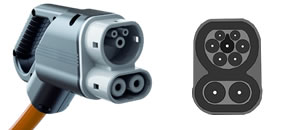 |
| Charging Point | Max. Power | Avg. Power | Time | Rate |
|---|---|---|---|---|
| CCS (50 kW DC) | 50 kW | 40 kW † | 51 min | 140 km/h |
| CCS (100 kW DC) | 100 kW | 75 kW † | 27 min | 280 km/h |
| CCS (150 kW DC) | 101 kW † | 78 kW † | 26 min | 290 km/h |
| This vehicle supports Autocharge |
|---|
| This vehicle does not support Plug & Charge |
† = Limited by charging capabilities of vehicle
Autocharge: allows for automatic initiation of a charging session at supported CCS charging stations.
Plug & Charge: allows for automatic initiation of a charging session at supported CCS charging stations in accordance with ISO 15118.
Actual charging rates may differ from data shown due to factors like outside temperature, state of the battery and driving style.
Peugeot Claimed Specifications
The table below shows the claimed specifications from the manufacturer for charging the Peugeot e-Traveller L2 50 kWh. The specifications can differ from the table above for a variety of reasons. If real-world charge tests are available, these differences can be signifcant. If no real-world tests are available, the table above will be based on the manufacturer specifications as per the table below.
- Max. Power: maximum charge power during charging session
- Charge From: battery percentage (% SoC) where charging session is started
- Charge To: battery percentage (% SoC) where charging session is ended
- Time: time needed for charging session
| Peugeot Claimed Specifications |
|---|
| Max. Power | Charge From | Charge To | Time |
|---|---|---|---|
| 100 kW | 0 % | 80 % | 30 min |

